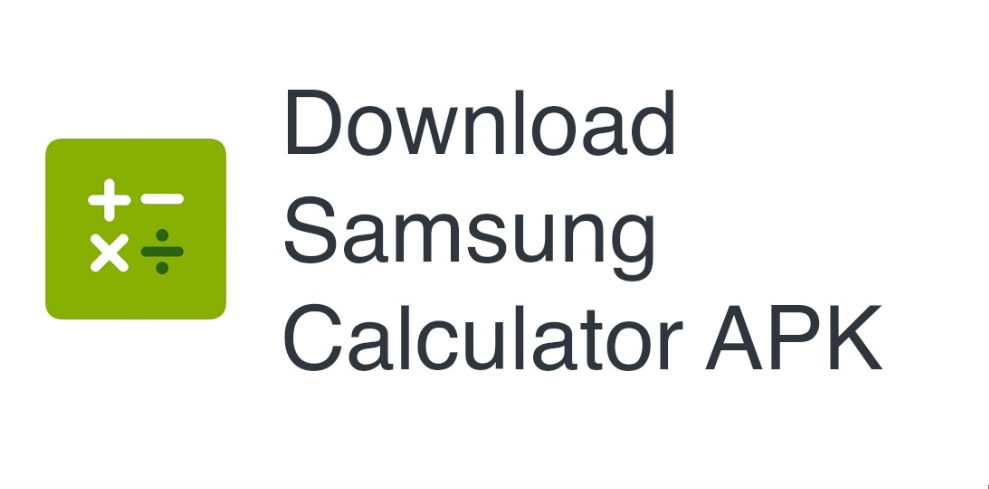| App | Calculator |
| version | 8.2 (453324893) |
| App uploaded by: | Santy A Amado |
| Requirements: | Android 6.0+ |
| size | 3.0 MB |
Introduction
In the digital age, where technology permeates every aspect of our lives, even the humble calculator has transformed. Calculator apps have become indispensable tools, finding a place on our smartphones, tablets, and computers. In this article, we explore the features, benefits, and evolution of calculator apps that have made them essential in both academic and professional settings.
Evolution of Calculator Apps
From Analog to Digital
Historically, calculators were standalone devices, often bulky and limited in functionality. With the advent of digital technology, electronic calculators emerged, paving the way for the sophisticated calculator apps we use today. The transition from physical devices to digital applications brought about a paradigm shift in terms of accessibility and versatility.
Integration with Smart Devices
The integration of calculator apps into smart devices such as smartphones and tablets has played a pivotal role in their widespread adoption. Users now have a powerful computing tool at their fingertips, eliminating the need for a separate physical calculator. The convenience of having a calculator within the device we use daily has led to a surge in their popularity.
Key Features of Modern Calculator Apps
Basic Arithmetic Operations
At their core, calculator apps perform basic arithmetic operations—addition, subtraction, multiplication, and division. They provide a user-friendly interface that allows users to input numerical data and obtain instant results.
Scientific and Graphing Capabilities
Beyond elementary arithmetic, many calculator apps offer advanced scientific functions. Trigonometric, logarithmic, and exponential functions are just a few examples. Some apps even extend their capabilities to include graphing functionalities, empowering users with tools traditionally associated with specialized graphing calculators.
Unit Conversions
Calculator apps often feature unit conversion capabilities, allowing users to seamlessly switch between different units of measurement. This is particularly useful in fields such as science, engineering, and finance, where conversions are a routine part of calculations.
Memory Functions
Memory functions, including the ability to store and recall values, contribute to the efficiency of calculator apps. These features enhance productivity by eliminating the need to manually re-enter frequently used numbers.
Customization Options
To cater to diverse user needs, modern calculator apps come with customization options. Users can often choose between different themes, layouts, and input methods to create a personalized user experience.
Practical Applications
Educational Use
Calculator apps have become indispensable tools in educational settings. From elementary school to university, students use these apps to solve math problems, conduct scientific experiments, and explore mathematical concepts. The portability and accessibility of calculator apps make them valuable companions for learners of all ages.
Professional Applications
Professionals across various industries rely on calculator apps for tasks ranging from financial calculations to statistical analysis. Engineers, scientists, accountants, and economists, among others, benefit from the convenience and accuracy offered by these digital tools.
Popular Calculator Apps
Microsoft Calculator
Microsoft’s built-in calculator app is a staple on Windows operating systems. It offers a user-friendly interface with basic and scientific modes, making it suitable for a wide range of users.
Calculator by Google
Google’s Calculator app, available on Android devices, combines simplicity with functionality. It includes standard arithmetic operations as well as a history feature for reviewing past calculations.
Wolfram Alpha
While not a traditional calculator app, Wolfram Alpha is a computational engine that can solve complex mathematical problems. It’s a powerful tool for students, researchers, and professionals in need of advanced mathematical capabilities.
The Future of Calculator Apps
As technology continues to evolve, so too will calculator apps. Integration with artificial intelligence, augmented reality, and enhanced collaboration features are some possibilities on the horizon. The ongoing development of these apps ensures that they remain relevant and continue to meet the diverse needs of users in an ever-changing digital landscape.
Conclusion
In conclusion, calculator apps have come a long way from their analog predecessors, evolving into versatile digital tools that cater to a wide range of users. Whether you’re a student, a professional, or someone who simply needs to perform quick calculations, the diverse features and accessibility of calculator apps make them indispensable in our daily lives. As technology continues to advance, we can expect these apps to play an even more integral role in shaping the way we approach and solve mathematical problems.


